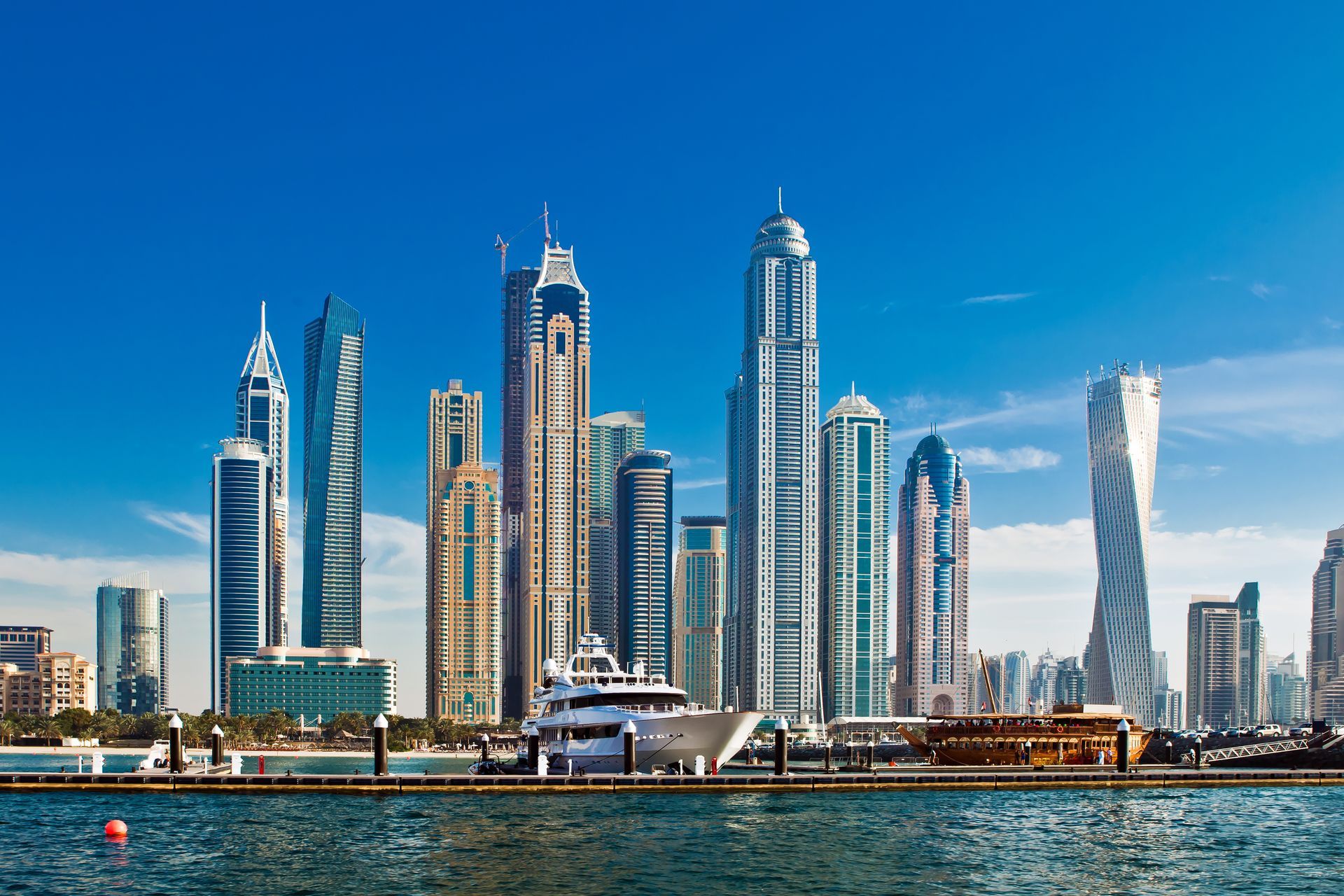Wealth and Financial Planning in the UAE: A Strategic Approach
Graham Bentley • March 19, 2025
Wealth and Financial Planning in the UAE: A Strategic Approach

The UAE has become an attractive financial hub, drawing in high-net-worth individuals and businesses looking for wealth management strategies. Offering tax-efficient structures, world-class financial institutions and access to various markets, the UAE presents opportunities for those wishing to protect or grow their wealth.
Contact Us
Book a Call
Your Risk Across Borders
One of the key principles of wealth management is diversification. By spreading assets across various jurisdictions, both individuals and businesses can reduce exposure to regional economic downturns, currency volatility, or regulatory shifts that might threaten their assets. International wealth management ensures financial stability and flexibility to protect from unforeseen challenges in your future financial endeavours.
Access Global Investment Opportunities.
Broadening one's investment options beyond local choices can drastically expand wealth potential. The UAE serves as a gateway to exclusive global markets, offering access to various asset classes such as stocks, real estate, private equity and alternative investments. By employing strategic plans investors can take full advantage of these opportunities to diversify portfolios and maximise returns.
Currency Diversification for Financial Stability
Holding assets in multiple currencies is an effective strategy for protecting wealth. Currency fluctuations can have serious ramifications on purchasing power and investment value; by diversifying into multiple currency portfolios, individuals can protect themselves against depreciation and inflationary pressures. The UAE financial ecosystem offers access to numerous multi-currency investments to boost financial resilience.
Geopolitical Hedging and Regulatory Stability
Global economic conditions are constantly shifting, and regulatory changes in any country can have significant ramifications on financial security. Diversifying holdings among multiple jurisdictions provides a safeguard against geopolitical uncertainty while keeping assets secure regardless of market fluctuations locally. UAE regulatory framework facilitates this strategy with investor-friendly policies and financial instruments designed to safeguard wealth.
Summary
Wealth and financial planning in the UAE provide unique opportunities for growth, security and long-term prosperity. By taking advantage of global investment access, currency diversification and geopolitical hedging tools available today - individuals and businesses alike can safeguard and expand their assets with confidence.
With expert assistance from Mosaic Chambers Group's Wealth Planning services you can create a tailored wealth plan tailored towards achieving your goals while protecting the future.

By Andy Wood
•
April 1, 2025
For over two centuries, the UK’s non-domiciled tax regime and its remittance basis has been a cornerstone of tax planning for wealthy expats and international families. It was introduced, along with income tax, by Willian Pitt the Younger at the very end of the 18th century. It was part of the fiscal firepower necessary to battle Napoleon Bonaparte. And, like income tax, it had pretty much been a constant feature of the UK’s system ever since. But in March 2024, the then Chancellor, Jeremy Hunt, rang the death knell for the remittance basis, with Labour’s Rachel Reeves – who would succeed Hunt a few months later - declaring she would have abolished it anyway. The end is therefore very much nigh for the UK’s non-dom tax regime. More specifically, the end is 6 April 2025. However, out with the old and in with the new’ goes the saying. As such, the ‘what comes next’ will reshape the tax landscape for non-doms, expats, and international investors with a UK footprint (or those considering creating one). What is Domicile (and Non-Domicile)? Domicile is not a straightforward concept like tax residence. The latter is largely about physical presence (or otherwise) in a particular. Instead, as well as physical presence, it also requires an understanding of your future intentions. Is a place somewhere that you intend to live permanently or indefinitely. There are two main types of domicile that I will discuss here: • Domicile of origin: This is inherited at birth, usually from your father (if you think that is misogynistic then I don’t make the rules, OK?). You do not lose your domicile of origin. However, think of it as the foundations of a building. You can a domicile of choice on top it. • Domicile of choice: You build a new domicile of choice by achieving two things. Firstly, by physically residing in place and, secondly, by forming the intention to stay in that same place permanently or indefinitely. Both must be present.

By Andy Wood
•
March 26, 2025
So you’ve left the UK for pastures new. The sun is shining. You're making more money. You’re enjoying a great quality of life in a new country. In fact, you’re totally de-mob happy. Even better, as a non-UK resident, UK taxes are a dim and distant unpleasant memory, right. Right? Wrong. I don’t necessarily see my role in life as chief balloon popper. However, there are some Uk tax things you should bear in mind before declaring yourself a tax exile. Am I really non-UK Resident (“NR”)? Up until 2013, the UK didn’t really have a statutory definition of residence for tax purposes. Yes, that’s as crazy as it sounds. Fortunately, the Statutory Residence Test (“SRT”) was introduced from 2013. The idea is that it provides a degree of objectivity through a series of tests. Although a statutory test, other than in straightforward cases, it can still remain complex.

Mosaic Chambers Group is a trading style of Mosaic Chambers FZ LLC
BUSINESS CENTER 05,
RAKEZ BUSINESS ZONE FZ
Email us
info@mosaicchambers.com
© 2025
All Rights Reserved | Mosaic Chambers Group LLC | Privacy Policy